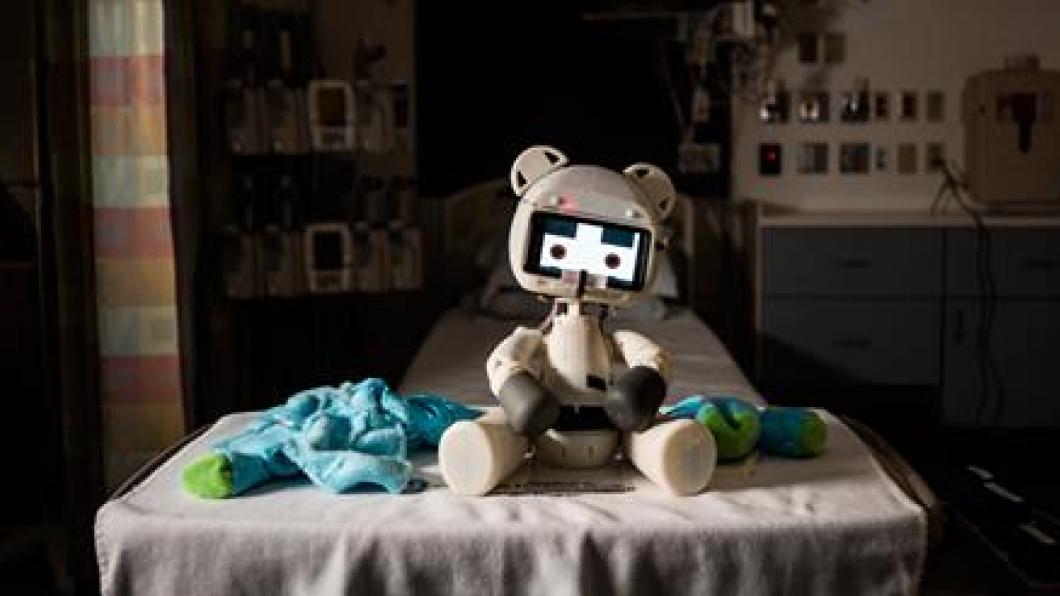
Can a robotic bear help kids in hospital feel better?
This video today on The New York Times looks at whether a teddy bear robot can help reduce anxiety, pain and loneliness in kids who are hospitalized.
The prototype, called Huggable, is being developed by Boston Children's Hospital and M.I.T.'s Media Lab. The hospital is financing a 90-person study to see if the robot, currently controlled by a remote worker, can capture a child's emotions by tracking physiological changes in a bracelet the child wears.
According to the related article, the robot, which will eventually operate on its own, "could be a soothing distraction and simultaneously capture data and information from patients, which would be fed to hospital staff, improving the continuity of care."
When I read about the research measuring physiological changes in hospitalized kids I immediately thought of this study done at Holland Bloorview several years ago. It found that children with severe disabilities, including some who can't communicate physically or verbally, react physiologically when watching a performance by our therapeutic clowns.
I understand that no hospital can afford to have therapeutic clowns or child life specialists available in the way that a robot bear could potentially be placed in each child's room.
I know robots are seen as the future, for example, in assisting seniors with physical tasks and keeping them company.
But I couldn't help feeling sad when I thought of the robot companion for our inpatient kids.
There is an interesting discussion going on at our Parent Voices at Holland Bloorview Facebook group with some very good points about the value of such a high-tech bear. If you haven't joined our group, please hop over and consider joining. Parent Voices is a place for parents to share practical advice and resources on parenting kids with disabilities.
What do you think of Huggable?